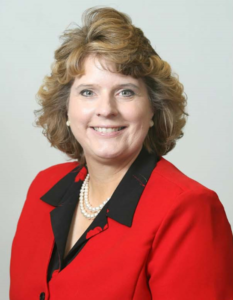
Telehealth Program Brings Mental Health Services to Rural School Students
Tears of sadness flowed down the cheeks of Karla Dzuris. She was at the point of doing anything that was needed to help her fifth-grade son.
For years, Dzuris had struggled with Mason’s behavioral issues, trying everything she could think of and hoping he’d grow out of a difficult phase. For years, she had avoided medications and mental health treatment due to the negative stigma and potentially damaging side effects of different drugs.
But one day, when the school told Dzuris, who was also an employee, that she had to simply take her son home because there was nothing more that could be done for him, she was finally ready to seek professional help.
Fortunately, Greene County Elementary School had recently become a pilot school for Classroom Clinic, a telehealth company owned by Sue Gehling, a psychiatric nurse practitioner. “When I started this business in the fall of 2019, I wanted to focus on children’s mental health and find a way to collaborate with schools,” Gehling said. “I created a school-based telehealth program to increase access for rural families in the area who simply can’t travel long distances for appointments and may not have high-speed internet at home.” During the years she spent establishing her practice, Gehling consulted periodically with gpTRAC and got feedback on her technology, policy issues, and business plan.
Dzuris’s family lives in Jefferson, Iowa, which is a small rural city with about 4,300 people, and had no access to local mental health professionals.
When the guidance counselors at the school suggested the Dzuris family work with Gehling, they agreed. Dzuris and Mason had a private room at Greene County Elementary and connected with Gehling at her office by video conference. Gehling was able to evaluate Mason during the telehealth and diagnose him with a medical condition frequently characterized by irritability anger outbursts.
“I prescribed medication for Mason, and the family said they saw a tremendous turnaround in less than a week,” Gehling said. “Prior to the treatment, the school had been trying to use academic strategies to help Mason, but he needed medical intervention. Unfortunately, there are many similar instances in our rural schools where a medical issue becomes a disruption in an academic setting.”
When Gehling and Dzuris connected for a follow-up telehealth visit several weeks later, the mom was crying again. But this time, the tears had been transformed to tears of joy.

Photo description: Sue Gehling, psychiatric nurse practitioner and owner of Classroom Clinic
Sidebar: Flexibility Tested During Pandemic
Classroom Clinic was working with two pilot schools when the COVID pandemic hit last spring. As schools shut down and communities scrambled to adjust to the coronavirus crisis, Classroom Clinic had to adjust alongside its communities.
“One of the schools deemed us an ‘essential service’ and still allowed students and parents to come into the schools for telehealth appointments,” Gehling explained. “The other was in a very small rural community where the school building served as a community hub for all sorts of non-school meetings. At first, they had to shut down the building for everyone so we stopped operating there.”
As the pandemic continued and remote meetings became the norm, Classroom Clinic was able to connect with families through the schools once again. “Many families in rural areas don’t have reliable internet so it’s critical they can access these services from schools,” Gehling said.
Although home virtual visits are rare due to connectivity issues, Gehling does make exceptions when such a visit makes more sense. “I had a student last week whose family couldn’t get to the school,” Gehling said. “We decided to do a home virtual visit in that particular case. I was able to conduct my regular medical appointment, and then the school team connected in right after so we could still conduct our multidisciplinary care conference.”

Photo description: Virtual visit with Classroom Clinic
